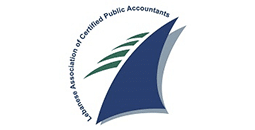A Chief Financial Officer (CFO) is a senior executive who carries a wide range of responsibilities, including financial reporting, high-level decision making, financial reporting, strategic financial management, performance evaluation, as well as investment decisions.
CFOs must have an extensive and comprehensive understanding of finance and accounting, enabling them to assist businesses in achieving their short- and long-term objectives, develop financial strategies in various sectors, and provide insights to the company. CFOs are also responsible for measuring and reporting on an organization's performance in compliance with relevant standards and regulations.


















